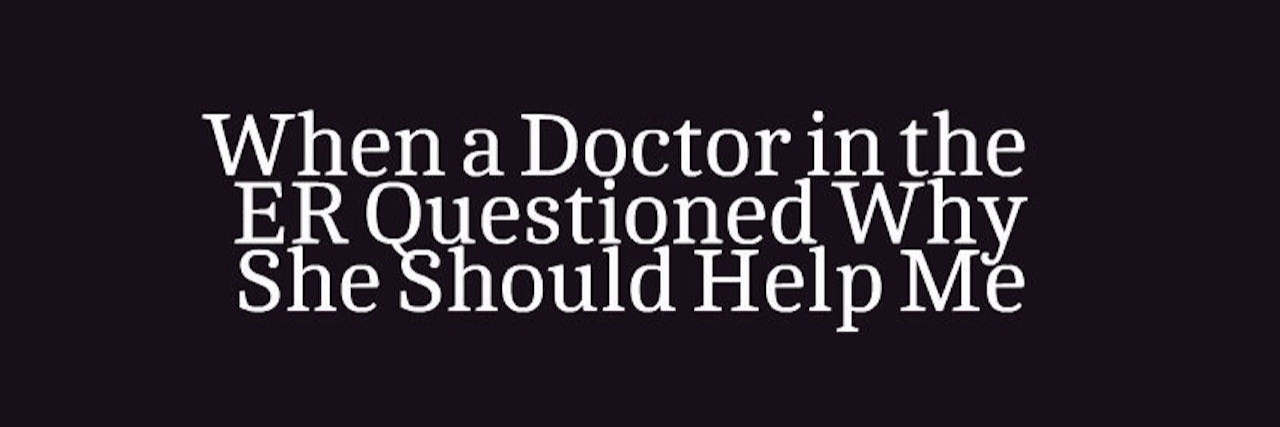Article updated August 5, 2019.
Editor’s note: If you struggle with self-harm, the following post could be potentially triggering. You can contact the Crisis Text Line by texting “START” to 741-741.
One morning last summer, I woke up to find blood seeping through my pajamas. Just hours before as the sun was rising, I had relapsed with self-injury after a year clean — this time worse than ever. When I realized I was still bleeding horror washed over me. I knew this meant I needed stitches. Which meant I needed medical help.
I toyed with different scenarios in my head. My father and I were the only ones in the house, and I couldn’t bring myself to tell him that not only that I had relapsed, but that I needed to go to the emergency room. Filled with shame and disappointment, I couldn’t bear the look of shock and confusion that would undoubtedly come over his face. So I decided to drive myself. After washing up and re-dressing my cut, I finally mustered the courage to walk into the room and tell my dad I was hanging out with some friends and would be back in a couple hours. At that moment, as my dad smiled and told me to have fun, I felt like the worst daughter in the world.
When I arrived the ER was pretty empty. When they asked me why I was there, I swallowed my embarrassment and quietly told them what had happened. That I had cut myself and it was still bleeding. The ER worker seemed confused. It took multiple explainations until she understood it wasn’t an accident. Finally it registered, and I was sent back to a room in the department.
As I sat in the room, a couple of different nurses were in and out. Most of them were cold. Only one made things a bit bearable. Here I was, alone, bleeding, vulnerable and scared, and the nurses made it seem like I was interrupting their day. One nurse undressed my cut to look at it, gave me a bunch of gauze and then disappeared behind the curtain, leaving me all alone again. When he later came back and saw I was still bleeding, as he walked outside I heard him say, “We’ve got a bleeder in here.”
I felt like I wasn’t even a patient, let alone a person. He talked to the other nurses about my cut like someone gossiping about some drama. They made it seem like my wound wasn’t even attached to a person. The next time someone came in, I asked where the doctor was and if I was going to get stitches. He just told me the doctor would be there soon.
Much to my dismay, the doctor didn’t make things better. In fact, she made things worse. I never felt so ashamed or embarrassed as I did in that hospital room. The doctor looked at my cut and asked me why. Why did I do it? I mumbled something about a relapse and she cut me off. It was not a relapse, because a “relapse” implies addiction, she said. Holding back tears, I tried to explain that for me self-injury is an addiction. But she told me this was a choice.
“Why should I even help you?” she said. “You’re just going to do it again.”
Those words cut me deeper than I have ever cut myself. This doctor — a person who has taken an oath to help those who need it — was telling me I wasn’t worthy of help or compassion. I finally got myself to go to the emergency room for a self-inflicted injury, something I probably should have done in the past, and I was being treated like I was wasting their time.
From what I’ve seen, this kind of treatment is far too common for people who live with mental illness. Even with so much information out there, stigma still exists in the very places that are supposed to help us. This is unacceptable. Mental illnesses are just as deserving of validation, treatment and compassion as physical illnesses. With 1 in 4 adults living with a mental illness, we need all health care professionals to be educated about mental illness so they can treat their patients with the compassion they deserve.
If you or someone you know needs help, see our suicide prevention resources.
If you need support right now, call the Suicide Prevention Lifeline at 1-800-273-8255.

